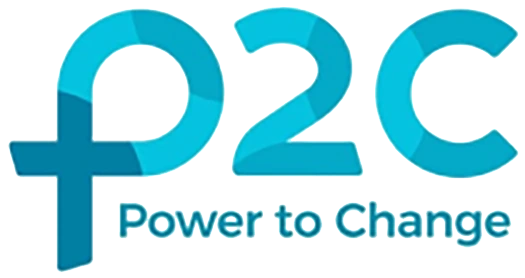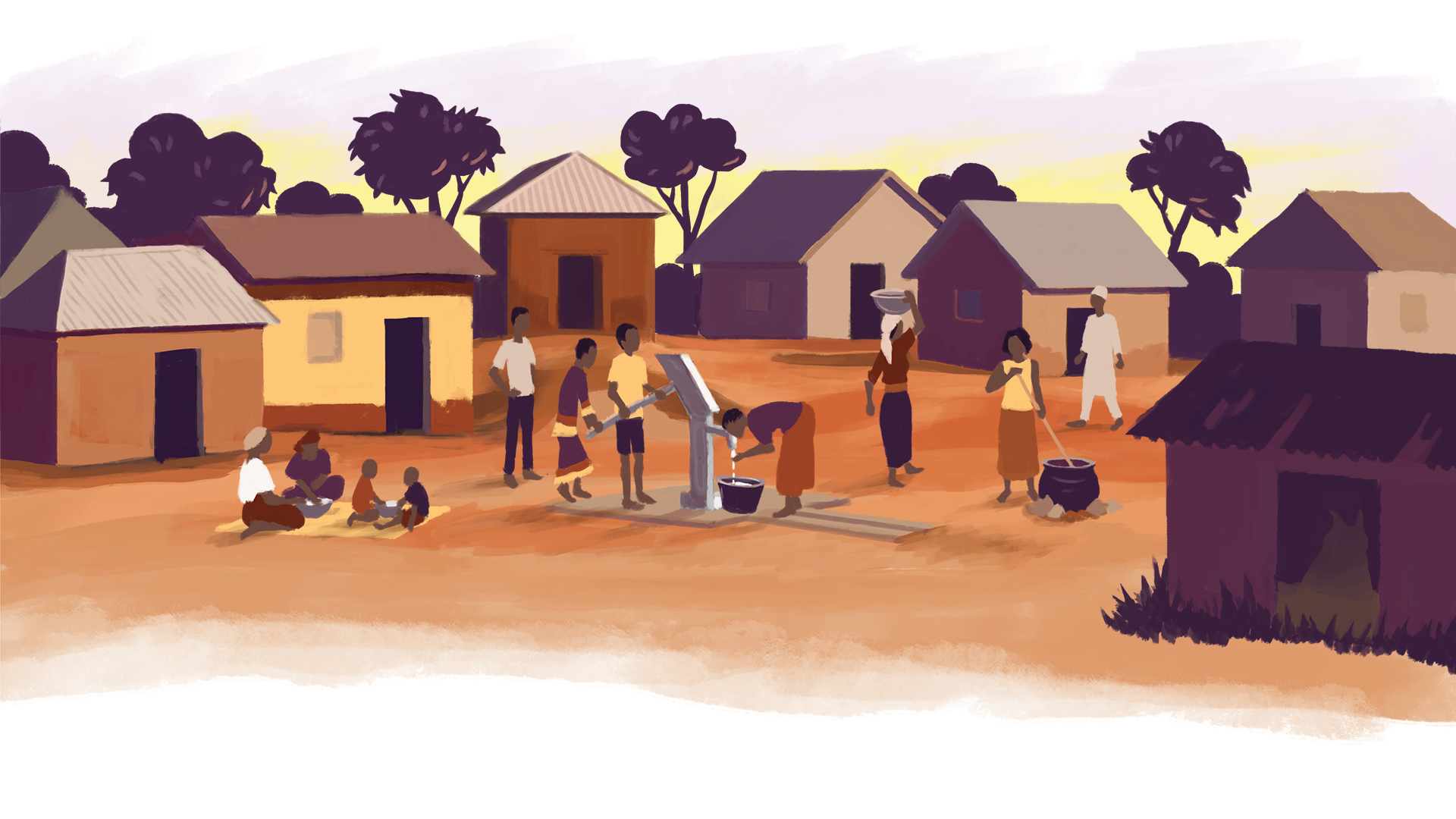Effia waited in line for her turn to collect water. Her daughter stood beside her, tugging on her arm.
“Look!”
A group approached the village. Effia lifted a hand to her eyes, and felt her heart leap as she recognized the logos on the shirts they wore.
The visitors from Global Aid Network waved as they approached, their faces lighting up as they saw the crowd around the well. The village was so different now that the villagers had access to clean water.
Effia’s own life was a perfect example of that. She used to wake up every morning while it was still dark and walk a total of ten kilometers to get water. She had to be careful of the alligators waiting in the rivers, crossing busy roads with trucks, and of men who might attack her during the journey. Each day had been a new worry, especially as her daughter had grown enough that she would soon be ready to help carry water on her own.
Effia pulled her daughter closer, thanking Jesus yet again for bringing the well to her village and sparing her daughter the challenge and daily uncertainty of desperately fetching water.
Along with sparing her daughter the treacherous journey and providing the opportunity for her to attend school, the new well had provided Effia more time to spend with her family, tend her fields, and attend community development training.
Oziegbe, however, was not happy to see the visitors. As soon as the voodoo priest realized who had come to the village, he rushed into the village center and began to yell at them.
“This is your fault,” he said furiously.
They frowned, perhaps not remembering who he was. Oziegbe jabbed a finger at the voodoo shrine he’d cared for for so many years. “Look at what you’ve done!” he exclaimed.
Effia looked at the shrine as well. For years, she’d lived in fear. Spiritual darkness and oppression had permeated her village. But now, she realized she hadn’t paid attention to the shrine in a long time, and it looked vastly different.
The shrine’s metal roof was missing pieces, grass grew around the structure, and the statue inside was so worn by wind and rain it had become unrecognizable. As villagers began to follow Jesus, others were drawn to this life transformation. There hadn’t been sacrifices since they’d watched the JESUS Film months ago.
“You see?” Oziegbe exclaimed.
“We do not need voodoo any longer,” Amadin said. Effia was relieved to see her village leader standing with the visitors, having guided them to the village.
“You’ll bring death on yourselves,” Oziegbe warned.
“No, Jesus has brought us life.” Amadin turned to everyone who was watching. “And that is why they have returned — to help us build a church honouring God, so we can worship together.”
There would be no more gathering under a tree and praying the rains lessened. Their new church family would finally have a sense of permanence. People from other villages could join them for worship, and their community would develop.
Although they had given up significant parts of their identity and family traditions to follow Christ, everything had changed. Jesus’ unconditional love opened their eyes, creating a deep desire in their hearts to break the cycle of spiritual brokenness. He brought life to every area to their village.
Effia thought of the verse they had learned during their last worship service: “Then Jesus spoke to them again, saying, ‘I am the light of the world. He who follows Me shall not walk in darkness, but have the light of life.’” (John 8:12)
Effia is a fictional example of the thousands of women whose lives are transformed by clean water and the Living Water. Learn more about GAiN’s life-changing work here.


